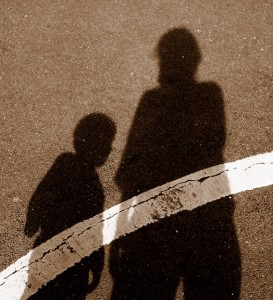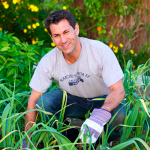Teaching Stranger Awareness Without Instilling Fear
 With the recent kidnapping and molestation of an 8 year-old child, parents are once again encouraged to sit down with their kids and discuss “Stranger Danger” which typically leads to children being “afraid” of talking or interacting with “strangers”.
With the recent kidnapping and molestation of an 8 year-old child, parents are once again encouraged to sit down with their kids and discuss “Stranger Danger” which typically leads to children being “afraid” of talking or interacting with “strangers”.
Beware of strangers is something that is common for parents to teach their children and for important reasons. No parent ever wants their child to get hurt and that is a core parenting task- protection. But, do we take it to far when we generalize that all so-called strangers should be avoided? This type of message fills the child’s mind with fear, a lack of trust, and worry that the general intention of others is “bad” or “sick” rather than “good” and “nice”. Don’t get me wrong , as a parent of three kids, I worry about them 24 hours a day but I try to teach them the truth about Society, namely that there are a lot more “good guys” than “bad guys” and be careful not to generalize. Yes, there are some bad apples in the bunch, but the majority of people are nice which are shown to us with sound research and statistics.
Raising kids these days has become more sensitive than ever to sensationalization. Television is tainted by the worst dramas in life not the good ones. Even the local news is disturbing. New studies are showing that watching TV or spending too much time on the Internet is bad for one’s health, mental and physical. Stranger danger is no different. Despite the actual chances of a child getting both kidnapped and molested are statistically rare, we tend to teach our children to be prepared for the worst case scenario, not the best ones. Developmentally, this leaves a mind message that the world is an unsafe place rather than a safe one and in many cases causes a child to lose a basic sense of trust. After all, safeness is determined how parents explain this to their kids. If parents are afraid, so will their children.
So, how to we get kids to be safe but not scared ? Can we teach them skills to help them determine if a stranger is safe or dangerous? The answer is yes. Here are some basic ways to help a child determine if a stranger is safe or not.
- Is the stranger either too friendly or too mean? Extremes usually teach us that some sort of balance is off. Obviously, teaching your kids to stay away from a mean person is a good first step, but what about too nice? Well, too nice too soon is a potential sign of a problem. That would be like petting a dog that you have not first approached with care. So, teaching that too nice might be nice but a sign of a problem so keep some distance at least until you get to know them better and discuss any new adult with parents before becoming friendly.
- Never agree to go with a stranger unless approved by a familiar adult.
- Never accept random gifts from a stranger unless they are related to a particular event one is attending and it is in the presence of others.
- Teach your kids to always check things out with you first before interacting beyond a “hi” with a person they do not know. However, if a nice adult says hello, nice kids should say hello too. This is merely a courtesy issue. Obviously, it the “stranger” wants something more, this falls into the “too nice too soon” category.
______________________________________________________________
Dr. Keith Kanner is a Licensed and Board Certified Clinical Child, Adolescent, and Adult Psychologist and Psychoanalyst. In addition to a full-time private practice in Rancho Santa Fe, California, he is an Assistant Clinical Professor of Psychiatry in the School of Medicine at the University of California San Diego where he teaches both human development and also trains medical students how to better understand and relate to their patients. He also serves as the Director of Clinical Counseling for La Jolla Country Day School in La Jolla, California, and is a Clinical Professor at The San Diego Psychoanalytic Society and Institute. Dr. Kanner also sits on the National Board of Directors for Kids Korps USA, which is the largest organization in the country that teaches children and adolescents the importance of volunteering to help the community at large. As a father of three children, he is also a dedicated baseball, football, and soccer coach.










You must be logged in to post a comment Login